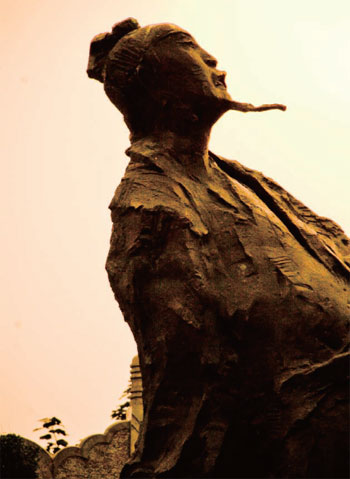Life on the Water's Edge: The Culture and History of the Qinhuai River

Jiangnan Examination School
To love him means not to let him indulge in comfort; to be loyal to him means to teach him. — The Analects
With the ability to accommodate up to 26,000 students at one time and sitting alongside the Qinhuai River, Jiangnan Examination School was a massive center of learning in Nanjing. Today what remains of the 26,000 cells are the best-preserved examples of the examination quarters and give a peek into the life of the scholars taking the test. The Jiangnan Examination School was built in the Song Dynasty, nearly 1,000 years ago and reached its political and society zenith in the Ming Dynasty as Nanjing was once again the imperial capital of China.
Despite being one of the biggest examination centers it could strike fear into the minds of the would-be scholars. The implication of the term cell was not lost as the three-walled rooms were only about one square meter in size. The barren walls offered no comfort and the two wooden planks that served as a bench to sit and a table to write on also doubled as a bed at night. Students were quarantined to these cells throughout the process and slept in the cells that were not big enough to fully lie down in.
The concept can be seen as a way to keep things equal as the exam was aimed at fair promotion through learning. Students were given a number to replace their name on all work. Essays were even re-transcribed by a third person to ensure handwriting was not recognized and preferential treatment given. This faceless examination process ensured objectivity as well as reducing the chances for cheating.
It is important to mention cheating on these exams as one of the highlights of the associated museum are examples of the devices employed by the students. Crib sheets and prewritten answers were of course used. Notes were hidden in food or wrapped around brushes, even sewn into clothing. With the examination process meaning an advance in status or that taking the exam became a mental hurdle for many, cheating was an only option for some. Due to the close proximity of the cells armed soldiers controlled passing notes between students and bribery was not uncommon.

Once the test was started you could not leave. Watchtowers served to oversee the soldiers who in turn oversaw the students. Cold weather or extreme heat was simply something you as a student had to endure. For the wealthier students it could be livable, for the poorer students it could be a nightmare. Either way the exam was a test of both mental and physical endurance. The payoff was too great not to put up with the conditions.
All of course was forgotten when you passed the examination. Years of study and learning were poured out in a nine-day marathon of writing with the chances being very slim of even passing. For those that failed they had another three years of studying and drudgery ahead of them, if they even had it in them. For those that succeeded nothing could be more euphoric than stepping over the Dragon Step at the examination hall, the first public showing of you as a scholar.
 0
0 







Go to Forum >>0 Comments